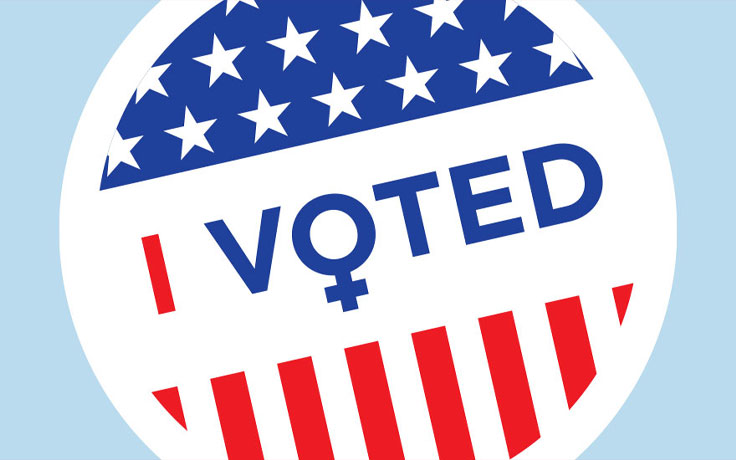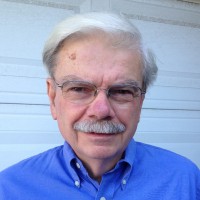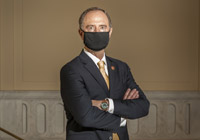IF LYNN VAVRECK WERE PRESIDENT-ELECT of the United States, she would summon all governors and secretaries of state to talk about administering elections.
Standardizing the polling across all states would be difficult because of federalism, but maybe the meeting could come up with a set of best practices. Is there a better way to handle mail-in ballots? Is there a way to count them without “some poor people staying up for five days feeding paper through a machine?”
Vavreck, the Marvin Hoffenberg Professor of American Politics and Public Policy at UCLA, has written five books, including The Message Matters, considered required reading for presidential candidates. She is a principal researcher at Nationscape, the largest ongoing opinion study in the United States. It surveys 6,000 people a week and will complete 500,000 interviews by Inauguration Day.
She has a Ph.D in political science from the University of Rochester and has held appointments at Princeton and Dartmouth. At UCLA, she teaches courses about campaigns, elections, public opinion and the 1960s. She is a contributor to The Upshot, a politics blog at the New York Times. And she has worked as a press advance person during a presidential campaign as a way to observe a presidential election from the inside.
It is important, she says, to watch politicians up close and how voters react to them. “No matter what you’re doing, get your hands dirty,” she once told an interviewer. “If you’re building widgets, go to the factory floor and try to build one. If you’re studying campaigns, go out and travel around with candidates [and] watch them campaign. It will make you better at your job.”
The day after Joe Biden became president-elect, Vavreck and Blueprint senior editor Rick Meyer discussed the 2020 election.
Blueprint: Why did Biden win? Tell me about his campaign. What did he do right? What did he do wrong? And then I’ll ask you the same questions about Trump.
Lynn Vavreck: Biden’s focus on COVID and the economy as a referendum on Trump’s job performance was the right focus at the right moment. And the message discipline on that: It just never wavered as the main focus of the campaign – and was probably the thing that served him best.
BP: How about Trump?
LV: Well, he comes into the election year thinking he’s going to benefit from a booming economy, and then that gets taken away suddenly. And very quickly, after the Memorial Day killing of George Floyd, he pivots to a crime-and-safety, law-and-order message, and that sort of dominated the Republican National Convention. And it probably was also his best move. It was a little bit of a replay of what he did in 2016, bringing identity-inflected issues into his campaign and rallying his base around those ideas.
It would have been better if he had done all of the things about COVID that he said he was going to do: drive-through testing, taking over the Walmart parking lots and the Target parking lots and CVS. You know, he had a lot of initially pretty big and good ideas. But that none of that ended up being true.
He sent those first relief checks. He signed them. He sent letters with his signature. That’s very Roosevelt–New Deal kind of stuff. And if he had kept on doing that, it might have also been a good pathway.
BP: What were Trump’s bad moves?
LV: Not dealing with COVID in a way that made people think he was trying to make their lives better. This was complicated because a lot of people just wanted to go back to work. They wanted to go back to normal. But if you go back to normal, the pandemic gets a lot worse. So there has to be a new normal. I think Trump messed up by not trying to get people back to a new normal that would satisfy those who were frustrated with mitigation strategies, but also would satisfy people who were and are struggling. You know: “I can’t pay their rent.” He was not solving those problems in any kind of a coordinated way or trying to solve them. That was a misstep.
BP: What about Biden’s missteps?
LV: The “battle for the soul of a nation” was not great. He started with that before COVID, and it sounded an awful lot like a replay of Hillary Clinton’s 2016 campaign, making it all about Donald Trump. Half of the electorate voted for Donald Trump in 2016, and you’re really not going to win their votes by shaming them and telling them that they damaged the soul of the country. That never struck me as a great strategy. But then when COVID hit, and Trump abdicated his responsibility, the battle for the soul of the nation became about saving the nation from COVID – not about saving it from Trump, even though that was what Biden was linking together. So I think he got very, very lucky.
BP: But it was smart too, wasn’t it – moving off the soul-of-the-country message and focusing on COVID?
LV: Definitely. Soul-of-the country was still his campaign slogan. He talked about it in his acceptance speech. But I didn’t think starting out with a “battle for the soul of a nation” was a winning plan.
BP: If you had to single out two things – or three – that determined the outcome, what would they be?
LV: COVID, for sure. The economy. Turnout. Lots of advertising by the Biden campaign. In some states, that could have been the margin, you know.
BP: It surprised me when some exit polls showed that four in 10 voters prioritized the economy over efforts to limit the coronavirus.
LV: That doesn’t surprise me. The economy is always one of the most important issues to people, and COVID and the economy are linked. They cannot be separated.
BP: What have you learned from this election?
LV: Good question. 1) Never stop campaigning. Sometimes presidential elections can turn on a couple of thousand votes, so candidates should not cede the endgame to their opponents. 2) I think that [electoral] institutions functioned well. That would probably be another important takeaway.
BP: Anything else?
LV: You know, lots of people took advantage of voting by mail. It’s hard to know whether that was all COVID related or if people would just prefer to do that. I think there has to be a big moment of thinking about how we administer elections. If I were becoming president in January, that would be a focus of mine. Let’s get all of the secretaries of state and the governors – let’s get everybody together – and let’s work this out in some way.
BP: Standardize voting across the country?
LV: That’s hard because of federalism. But maybe there could be a set of best practices. Maybe there could be coalitions of states that collaborate to make elections more straightforward and feasible. People don’t trust electronic voting. They didn’t like it when some states had machines at polling places that you could touch like an ATM. But a lot of work has to be done to get us to a place where we’re not worried about some poor people staying up for five days feeding paper through a machine [to count votes].
BP: What kind of improvements would you like to see?
LV: That is pretty far outside of my area of expertise, but there are people who work on this, so I know they would have good ideas. We had the Help America Vote Act after 2000. [It was meant to address improvements to voting systems and voter access.] I don’t know how that has actually played out, but it’s probably time for the next round of that.
BP: What haven’t I asked you that I should have?
LV: We’re at a historic moment. We will have the first woman in a White House administration. That has gotten a lot less attention than I think it should. I guess it’s because the election was so close, and people were focused on the outcome. But it is amazing. Kamala Harris is a really interesting woman. The opportunity is there for her to mark the 21st century as the time when women as political leaders in America finally stepped into the spotlight.
























